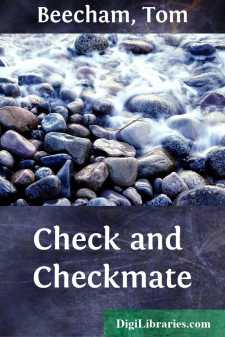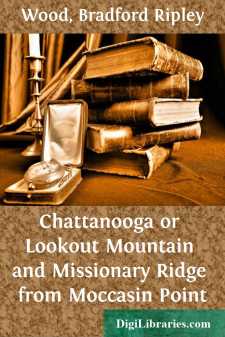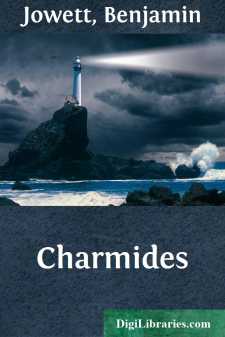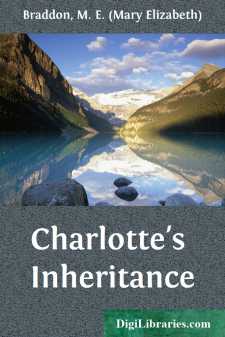Fiction
- Action & Adventure 180
- Biographical 15
- Christian 59
- Classics 6965
- Coming of Age 5
- Contemporary Women 3
- Erotica 8
- Espionage/Intrigue 12
- Fairy Tales, Folklore & Mythology 236
- Family Life 169
- Fantasy 117
- Gay 1
- General 596
- Ghost 32
- Historical 808
- Horror 43
- Humorous 160
- Jewish 25
- Legal 4
- Medical 22
- Mystery & Detective 315
- Political 49
- Psychological 41
- Religious 64
- Romance 159
- Sagas 11
- Science Fiction 730
- Sea Stories 113
- Short Stories (single author) 537
- Sports 10
- Suspense 1
- Technological 8
- Thrillers 2
- Urban Life 31
- Visionary & Metaphysical 1
- War & Military 173
- Westerns 199
Fiction Books
Sort by:
Foreword My sole aim in bringing this little pamphlet to you is to definitely call the attention of the men and women of the Central Western States, and especially those of the City of Chicago into whose hands it may come, to the vicious, thoroughly organized white-slave traffic of to-day, and its attendant, far-reaching, horrible results upon the young man and womanhood of our Land. During a constant...
more...
by:
Edna Ferber
I The editor paid for the lunch (as editors do). He lighted his seventh cigarette and leaned back. The conversation, which had zigzagged from the war to Zuloaga, and from Rasputin the Monk to the number of miles a Darrow would go on a gallon, narrowed down to the thin, straight line of business. "Now don't misunderstand. Please! We're not presuming to dictate. Dear me, no! We have...
more...
by:
Henry M. Blossom
Checkers I I had never before attended the races. "The sport of kings" is not popular in Boston, my former home, but here in Chicago every one turns out on Derby Day, if at no other time. And so, catching something of the general enthusiasm, my friend Murray Jameson, who by the way is something of a sport, and I, who by the same token am not, found ourselves driving a very smart trap out...
more...
Kansas was one of the first states for which a detailed book on birds was published (N. S. Goss, "History of the Birds of Kansas," Topeka, Kansas, 1891). Ornithological progress in Kansas in recent years, however, has not kept pace with work in many other states. As a result, knowledge of the birds of Kansas today is not sufficiently detailed to make possible a modern, definitive report. One...
more...
by:
Tom Beecham
John Smith XVI, new President of the Western Federation of Autonomous States, had made a number of campaign promises that nobody really expected him to fulfill, for after all, the campaign and the election were only ceremonies, and the President—who had no real name of his own—had been trained for the executive post since birth. He had been elected by a popular vote of 603,217,954 to 130, the...
more...
In the fall of the year 1863, during the Civil War, while serving in the signal corps attached to the fourth corps of the army of the Cumberland, it was my privilege to have a good station on Moccasin Point, opposite Lookout Mountain, on the north side of the Tennessee river, from which to witness the assault of the Union troops under Gen. Hooker up the north face of the mountain, and also the charge...
more...
by:
Edward Robins
CHAPTER I HAZARDOUS PLANS The lightning flashes, the mutterings of thunder, like the low growls of some angry animal, and the shrieking of the wind through swaying branches, gave a weird, uncanny effect to a scene which was being enacted, on a certain April night of the year 1862, in a secluded piece of woodland a mile or more east of the village of Shelbyville, Tennessee. In the centre of a small...
more...
CHAPTER I THE LADY OF THE TREE The man lay in the tall grass. Behind him the wall of the Killimaga estate, from its beginning some fifty yards to his left, stretched away to his right for over a thousand feet. Along the road which ran almost parallel with the wall was the remnant of what had once been a great woods; yearly the county authorities determined to cut away its thick undergrowth—and yearly...
more...
by:
Benjamin Jowett
INTRODUCTION. The subject of the Charmides is Temperance or (Greek), a peculiarly Greek notion, which may also be rendered Moderation (Compare Cic. Tusc. '(Greek), quam soleo equidem tum temperantiam, tum moderationem appellare, nonnunquam etiam modestiam.'), Modesty, Discretion, Wisdom, without completely exhausting by all these terms the various associations of the word. It may be described...
more...
CHAPTER I. LENOBLE OF BEAUBOCAGE. In the days when the Bourbon reigned over Gaul, before the "simple, sensuous, passionate" verse of Alfred de Musset had succeeded the débonnaire Muse of Béranger in the affections of young France,—in days when the site of the Trocadero was a remote and undiscovered country, and the word "exposition" unknown in the Academic dictionary, and the Gallic...
more...











